Those Who Read Fiction Better at Reading People
by www.SixWise.com
"Books say: she did this because. Life says: she
did this. Books are where things are explained to you; life
is where things aren't."
-- Author Julian Barnes
If you've ever longed for the solace of the novel on your
nightstand or found yourself thinking about its characters
long after the book was closed, you will likely relate to
a new study that lends credence to the, previously unstated,
feelings that reading fiction evokes.
|

People who read fiction are more empathetic and able
to judge people and social situations than people who
read non-fiction.
|
A study published in the Journal of Research in Personality
and led by Raymond Mar, a doctoral candidate in psychology
at the University of Toronto, found that people who read narrative
fiction often have improved social abilities, while for those
who read non-fiction, the opposite holds true.
"All stories are about people and their interactions
-- romance, tragedy, conflict," says Mar. "Stories
often force us to empathize with characters who are quite
different from us, and this ability could help us better understand
the many kinds of people we come across in the real world."
Fiction Readers Score Higher on Tests of Empathy
Because people sometimes exaggerate their actual reading
on surveys, Mar and colleagues used a different method to
determine how much their 94 participants really read.
The participants were asked to identify fiction and non-fiction
authors from a long list of names (which included non-authors).
Research has shown that the more authors a person identifies,
the more the person reads.
They were then tested on measures of social awareness and
empathy (such as recognizing a person's emotions from seeing
only a picture of the person's eyes). The study found that:
-
People who frequently read narrative fiction scored higher
on tests of both empathy (the ability to understand and
identify with another person's feelings) and social acumen
(the ability to make quick judgments of people and situations).
-
Frequent reading of non-fiction was associated with
poorer empathy and social acumen.
A follow-up study found similar results. Those who read a
short story from the New Yorker performed better on a social-reasoning
task that followed than those who read an essay.
"In general, fiction print-exposure positively predicted
measures of social ability, while non-fiction print-exposure
was a negative predictor. The tendency to become absorbed
in a story also predicted empathy scores," the researchers
wrote.
Why is Fiction Reading Good for Social Awareness?
The researchers developed two theories to explain why reading
fiction may be good for social skills. First, it exposes people
to examples of the way people behave socially. Second, fiction
readers practice inferring people's intentions and closely
watching their relationships.
However, non-fiction readers, the authors say, "fail
to simulate such experiences, and may accrue a social deficit
in social skills as a result of removing themselves from the
actual social world."
While a direct cause-and-effect relationship remains to be
established, Mar is optimistic:
"Should future work determine that fiction-reading
interventions yield improvements in empathy, stories could
prove a powerful tool for educating both children and adults
about understanding others, an important skill currently
under-stressed in most educational settings. If it proves
to be the case that the causality of this relation is reversed
-- that being more empathetic predisposes people toward
reading fiction -- we will still have learned something
interesting about fiction, and about empathic personality."
More Reasons to Read
Other studies have also found reading (of all kinds) to be
beneficial for a host of reasons, including:
If you're still looking for a reason to read, be sure to
check out our past article: Want
to Live Longer? Be Wealthier? And Happier? Here is the One
PROVEN Secret: Reading!
|
Top 5 Novels of 2006
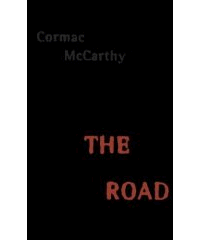 |
1. The
Road
Cormac McCarthy
Described as a rich, brutal "post-apocalyptic
masterpiece," "The Road" is written
in beautiful prose that follows a father and son
on the ultimate journey of survival, hope and
humanity.
|
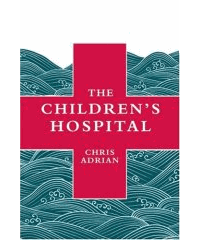 |
2. The
Children's Hospital
Chris Adrian
An epic tale of the sole survivors after the
earth is covered in seven miles of water -- those
aboard the Children's Hospital, a working medical
facility and ark. Magical, mesmerizing and full
of heartfelt emotion.
|
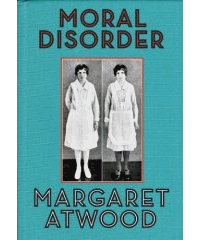 |
3. Moral
Disorder
Margaret Atwood
A series of poignant, intelligent and deeply
personal stories make up this novel, which follows
a Canadian family from the 1930s to present-day,
from large cities, to suburbs, to Northern forests
and a farm.
|
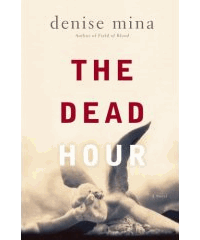 |
4. The
Dead Hour
Denise Mina
A sequel to "The Field of Blood," "The
Dead Hour" is a crime thriller of suicide,
murder, violence, and greed.
|
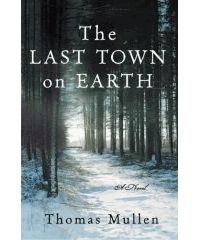 |
5. The
Last Town on Earth
Thomas Mullen
Set during the 1918 flu epidemic, a small mill
town in the Pacific Northwest decides to quarantine
itself, placing guards at its only access road.
"The Last Town on Earth" is a remarkably
moving story of morality as an ill soldier shows
up at the town and begs for sanctuary.
|
|
Recommended Reading
How
(and Why) to Teach Kids to Care: What Amazing New Studies
Suggest
Who
is Better at Revenge, Men or Women?
Sources
Journal
of Research in Personality, Volume 40, Issue 5, October 2006,
Pages 694-712
Wordpress.com
Psychology
Today Magazine Nov/Dec 2006
BPS
Research Digest